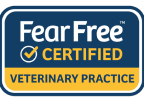At Westport Veterinary Clinic we recommend that a puppy health check be carried out within a few days of collecting your puppy, which is why we offer a free consultation for a puppy health check. At this time you can ask any questions that you may have.
We know only too well just how much new information there is to take in when expanding your family to include a canine companion. This page is full of handy information to help you settle your puppy into their new home and to grow into a happy, healthy, confident young dog.
Most puppies are born with some immunity, which they get from their mum. This only lasts for up to two months so your puppy needs to be vaccinated to continue the protection.
Regular vaccinations are important to protect against infection with distemper, hepatitis, parvovirus, parainfluenza and leptospirosis. First vaccinations can be given from 7 weeks of age, followed by a second vaccination 2-4 weeks later, when at least 10 weeks old. Your puppy can start going out for short walks 1-2 weeks after the second vaccination.
After this primary vaccination course it is important to keep your pet up to date with yearly booster vaccinations to ensure continued protection; this is also a requirement for boarding at most kennels.
We also advise giving the kennel cough vaccination (included in our Friends of Westport scheme) which will help protect against some respiratory infections. Despite the misleading name, these infections can be picked up anywhere, not just from kennels! We can give this after the primary vaccination course.
When your puppy is old enough, you may want to think about getting them neutered (spayed (females) or castrated (males)).
We neuter dogs from 6 months of age, depending on their size. For large breeds, we advise you to consider waiting until they are fully grown before neutering, as there is some evidence that early neutering in these breeds may increase the risk of orthopaedic problems in later life.
There are many benefits to neutering, such as preventing unwanted litters and reducing the risk of certain cancers and other problems, but as each dog is an individual with different requirements, we will be happy to talk through what may be best for you and your pet in terms of why, when and whether to consider neutering.
We advocate using appropriate parasite prevention throughout your pet’s life, both for their health and the health of their human family!
We advise using the following two tablets, each given monthly, to provide your puppy with comprehensive anti-parasitic cover. Credelio prevents flea and tick infestations, whilst Milbemax is active against roundworms, lungworms and tapeworms. Both of these products are available monthly on our healthcare plan, Friends of Westport. Other options are also available, and as each animal is individual our dedicated team of vets will work to find the right solution for you snd your puppy.
Lungworm can cause serious health problems and prevention is always better than cure, especially as we now know it is spreading and has been reported in central Scotland. Ticks are no longer a problem only of rural areas, and can transmit potentially life-threatening diseases. Heavy roundworm burdens can cause serious disease in young animals, including intussusceptions; they also pose a human health risk.
For all of these reasons and more, it is important to follow veterinary recommendations for parasite prevention. Veterinary anti-parasitic products have been clinically proven to be safer and more effective than ‘over the counter’ versions bought at pet shops and supermarkets.
Due to the rapid growth and development all puppies experience during their first few months of life, we carry out regular weight and health checks with our nurses until your pet is at least 6 months old, or their weight is more consistent.
This ensures correct dosing relative to bodyweight for parasite prevention and allows us to check that your pet is a healthy weight. These appointments also provide fantastic opportunities to develop your puppy’s positive associations with spending time in the practice.
It is a legal requirement for puppies to be micro-chipped at 8 weeks of age. A microchip is a tiny chip, the size of a grain of rice, which is implanted under the skin between the shoulder blades. It contains a number unique to your pet, which is then registered with a microchip database, along with your name, address and contact details. This means, if your pet was ever to get lost, they could be scanned when found and the database searched for your details, so they could be safely reunited with you.
For this reason, it is very important to keep your registered details up to date. If your puppy has been microchipped with us, we will initially register the chip; if your pup was chipped with the breeder, you’ll want to check your details have been added to the system. If any of your contact details change in the future, it’s important to update the information you have registered. Please ask if you have any questions or concerns about this.
Periodontal disease is a serious but sometimes overlooked health issue, with more than 87% of dogs over 3 years of age having some form of this progressive, degenerative disease. Dogs are very good at hiding dental pain from us, but believe us, it is sore!
The best time to start dental care for your puppy is now! Getting them in a routine is much better and easier than having to start after they already have sore mouths.
Click Here to read more about dental care at home. Dogs Trust have also put together this useful guide to brushing your dog’s teeth.
Getting the right nutritional balance is very important at all stages in your pet’s life, to ensure healthy development and growth. The best way to achieve this is by feeding a high quality, protein based, balanced diet especially formulated for puppies.
Veterinary HPM™ is an advanced low-carb, high-protein formulation specifically designed to support the long-term health and well-being of cats and dogs, the highly evolved carnivores in our own homes. Young puppies should be fed around 4 small meals a day when they are 8 weeks old. Feeding frequency can be reduced gradually as meal sizes increase.
We offer buy one get one free on your first bag of puppy food as well as getting your 6th bag free as part of our loyalty scheme.
We strongly advise getting your new kitten insured as soon as possible, to give you peace of mind that your pet is covered should they need it. A lifetime policy is the most comprehensive cover available (covers your pet year after year even for long-term conditions, so long as you don’t change policies) and we would always recommend opting for the highest payout you can afford.
Pet insurance is one area of life where it is certainly worth checking the fine print; for example, does a particular policy cover any dental work your pet may require during their lifetime?
We work in partnership with Petplan to offer 4 weeks of free insurance as Immediate Veterinary Cover; we can start the process of setting this up as soon as your kitten has been checked over by one of our vets. This will be activated by yourself via the email you will receive from Petplan.
Please use these 4 weeks to look around at the different insurance companies and policies to find out which is best for you. If you have any questions please ask one of our team.

Further Resources:
Click the links below or visit our Fear Free section for more information on helping your kitten adjust to their new environment. The resources below will help with building confidence, providing the correct resources for your kitten and generally helping them to thrive.
Introducing your pet to their new environment and other animals.
Building your dog’s confidence and providing a secure hideaway for them.
Information on handling and habituation for grooming.
House training advice for your new dog or puppy.
Information on handling and habituation for trimming nails.
Building your dog’s confidence with muzzles should they ever require one.
Your pet’s health is important.
Join Friends of Westport today!





